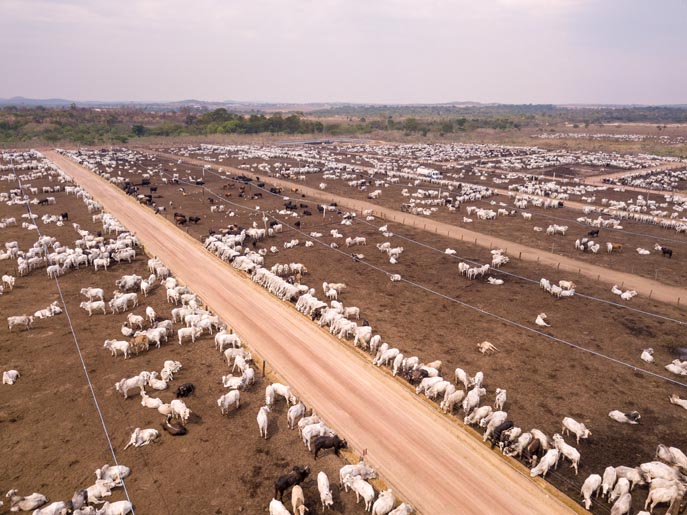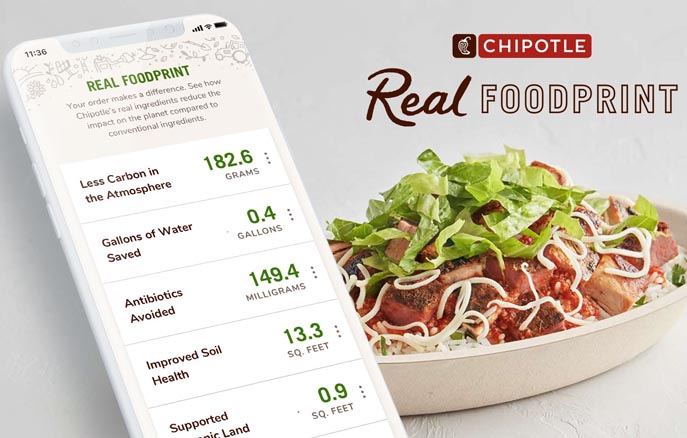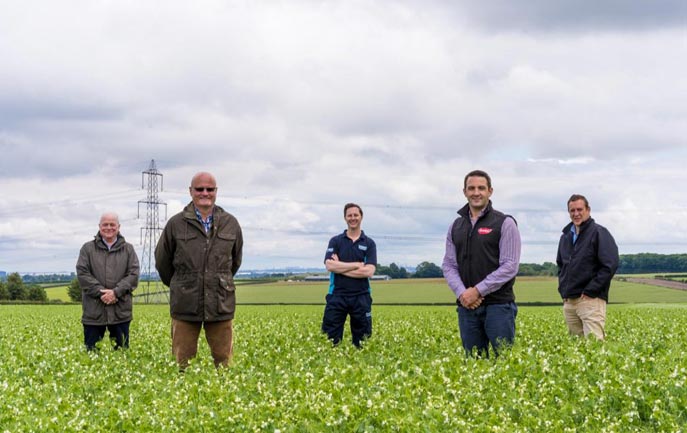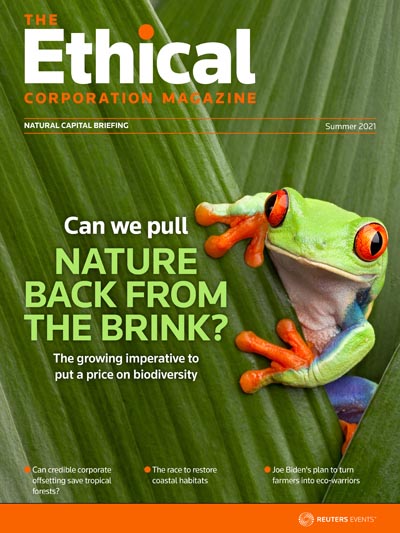Mike Scott reports how leading brands including Unilever, Chipolte, Nomad Foods and VF Corporation are reducing their impacts on nature as part of their net-zero plans
Companies are grappling with how to tackle the impacts of climate change on their business, and their impact on the climate, in ever-increasing numbers.
But they also need to address the impact and dependency on the natural world as well. Nature loss poses a direct threat to economic activities that generate over 50% of global GDP in sectors ranging from agriculture, textiles and food to mining and energy.
“Investors and companies really need to wake up and understand their dependencies and impacts on nature today,” says Harry Ashman, engagement analyst of the Church Commissioners for England. “They can’t kick this into the long grass, because in 10 years, that grass may not be there. If you have not already started looking at this, you will be behind the curve, and you may be behind regulation.”
We need a massive scale-up of nature-based solutions to tackle the climate crisis and biodiversity loss
Nature loss affects every business, says Erin Billman, executive director of the Science Based Targets Network (SBTN), an organisation set up last year to expand on the Science Based Targets initiative’s (SBTi) work on CO2 emissions, and come up with “measurable, actionable, time-bound objectives that equip companies to work within nature’s limits”.
SBTN is backed by all the partners in SBTi – WWF, CDP, World Resources Institute and We Mean Business – and another 35 organisations, including WBCSD, IUCN, the Nature Conservancy, the World Benchmarking Alliance and World Economic Forum.
It is the process of developing Science Based Targets for Nature, covering areas such as the quality and availability of freshwater, oceans, land and biodiversity. The first targets, likely for water quantity and quality, are set to be released by the end of this year, Billman says, though the entire design phase is set to last until the end of 2022.

More than 80 companies have volunteered to help develop the new targets through SBTN’s corporate engagement programme, include Coca-Cola, mining group Newmont, cosmetics group L’Oréal, and cement producer LafargeHolcim.
Church Commissioners was the first in the financial sector to sign up to the programme. “We have started to see wholesale action on climate change, but we need to be more intelligent in how we create a path towards net zero,” adds Ashman. “Many companies’ net-zero targets rely too much on offsets. We need a massive scale-up of nature-based solutions to tackle the climate crisis and biodiversity loss.”
Billman agrees on the need for companies to reduce their own impacts on nature, a practice known as insetting. The SBTN framework places offsets that are outside of a company’s value chain as the least preferred course of action.
Nature loss is being felt first and hardest by businesses that rely on natural materials as primary inputs
You need to start by understanding your dependencies and impacts on nature, but if you just offset those impacts, you will not stop nature losses,” Billman says. Nature loss is being felt first and hardest by businesses that rely on natural materials as primary inputs into their business, chiefly the food and agriculture sector, which is responsible for about a third of global emissions, 70% of water consumption and takes half of the world’s habitable land. The sector is also a major contributor to water and land pollution, and biodiversity loss.
Unilever is one of the biggest proponents of using nature based solutions in its strategy to reach net-zero by 2039, and last year introduced a Regenerative Agriculture Code for all its suppliers. (See Joe Biden's plan to turn America's farmers into eco-warriors)
The consumer goods giant has also pledged to have a deforestation-free supply chain by 2023.

Meanwhile, Heineken says that it will cut a quarter of its emissions by working with its main agriculture suppliers. It has launched a pilot programme to look at low-carbon farming practices on 500 farms.
In the U.S., the fast-food chain Chipotle Mexican Grill is working to integrate local farmers into its supply chain through its Local Growers programme, where it undertakes to buy one ingredient grown locally and in season.
Last year, for digital food orders, it introduced Real Foodprint, an impact tracker comparing the sustainability of its 53 ingredients with an industry standard using five key metrics, including water savings, antibiotics avoided and improved soil health.
You have to put your money where your mouth is, if you are going to reach net-zero goals
Helping small produce growers to make the transition to supplying a big company is not easy and requires investment, says Caitlin Leibert, head of sustainability at Chipotle Mexican Grill. “It’s a huge challenge, especially to do it at large scale. We need to both find new organic and regenerative farmers and go to existing suppliers and ask them to change.”
“But you have to put your money where your mouth is,” if you are going to reach net-zero goals in ways that are material to your business.
While organic farming is well-defined, the definition of regenerative agriculture is less clear-cut, Leibert cautions. “We’re working to ensure the definition of regenerative agriculture is academically rigorous. We want to be sure we’re not greenwashing.”

Another company at the forefront of regenerative agriculture is Timberland, which uses significant amounts of leather and rubber in its footwear business. “We’re looking at practices that pull carbon out of the atmosphere and store it in the soil, but also at improving outcomes for biodiversity, water holding capacity, soil health and farmer wellbeing,” says Zachary Angelini, environment stewardship manager at the company, which is owned by VF Corporation, which also owns Vans and North Face.
Timberland is still in the early stages of implementing nature-based solutions, carrying out pilot programmes and identifying early adopter farms and ranches for its leather supplies. It is also working to create a regenerative supply chain for the rubber used its footwear.
“Insetting drives environmental benefits through our sourcing of materials and the way we use them in our products, as opposed to using conventional materials and then offsetting the impact,” says Angelini.
Collaboration will be key to the uptake of nature-based solutions
Rubber, a significant contributor to deforestation across south-east Asia, is typically grown in a monoculture, degrades biodiversity and often uses chemicals or may involve exploitative labour practices, the company says. A more regenerative approach is to incorporate multiple species, which not only stores more carbon in the soil but also increases potential income streams for farmers, making them more resilient, and helping the local community.
Collaboration will be key to the uptake of nature-based solutions, Angelini says. “Footwear is the second-largest buyer of natural rubber, but the biggest by a long way is the tyre market, with about 90% of the market. We have a huge opportunity to pilot this and show the potential in the footwear sector and then the tyre makers can tap into the opportunity.”
“Rubber trees co-exist well with cocoa trees and we’re working out how we can work with chocolate producers to help farmers provide regenerative materials for both of us.” The company is also talking to ice cream and beverage producers because it uses the inedible part of sugarcane to provide a bio-additive for the soles of its shoes and boots.

Nomad Foods, owner of the Birds Eye and Findus frozen food brands, is one company that is applying both approaches. In a pilot project in the Humber region, in conjunction with Yorkshire Water, 40 pea-growing farms are planting cover crops – which it describes as pop-up rainforests – in the window between harvesting and sowing their next peas to capture CO2, reduce flooding and improve soil health.
It is a traditional approach, “but the whole thing is underpinned by data. We’re looking to manage as many variables as we can,” says James Hopwood, agricultural manager for the UK at Birds Eye. The company also uses satellite scanning to analyse chlorophyl levels and decide the best time to pick the peas. “We have a six to 12-hour window to get the optimum taste and texture,” Hopwood explains.
SBTN’s Billman says as well as regenerative agriculture practices, many of which date back thousands of years and have been handed down by indigenous people from one generation to another, modern technology will be important for some nature-based solutions.
“There is a tension between believing in technological solutions and respecting that the natural world will solve a lot of problems itself,” says Billman. “But the time for ‘either/or’ is over.”
Mike Scott is a former Financial Times journalist who is now a freelance writer specialising in business and sustainability. He has written for the Guardian, the Daily Telegraph, The Times, Forbes, Fortune and Bloomberg. He also writes the Brand Watch column Reuters Events Sustainable Business's monthly magazine, The Sustainable Business Review.
This article is part of The Ethical Corporation summer 2021 in-depth briefing on natural capital. Click on the cover to download your digital copy for free.
Main picture credit: Pebo/Shutterstock



